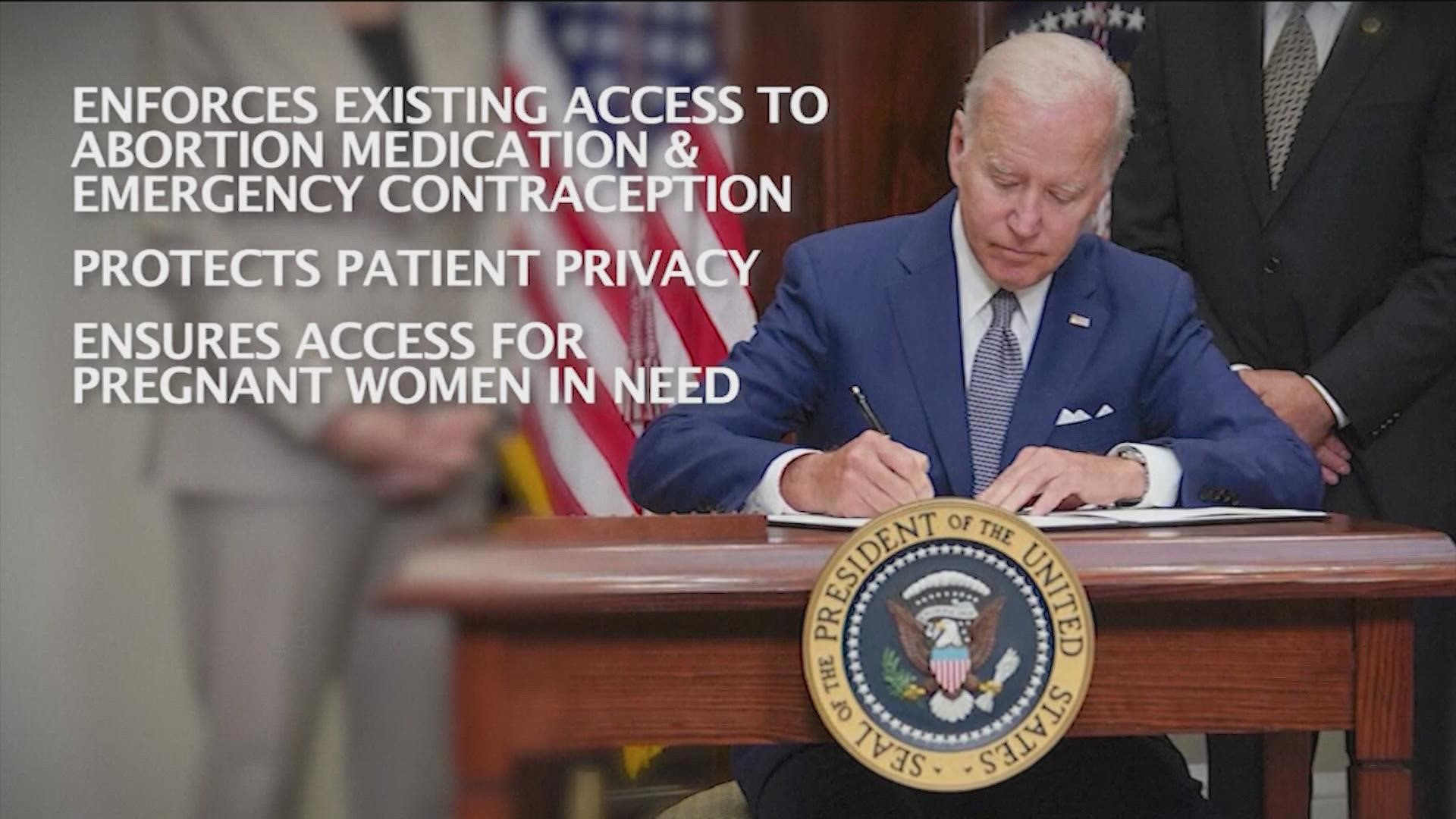AUSTIN, Texas — Following the U.S. Supreme Court's decision to overturn Roe v. Wade, some Americans are wondering if they should delete their period tracking apps over privacy concerns.
Data in the cloud for period tracking apps is owned by the company that runs the app and can be subpoenaed by law enforcement and used to build a case against someone suspected of having an abortion. Additionally, a number of popular tweets claim that period tracking apps sell users' data.
When the SCOTUS draft opinion was leaked in early May, a tweet by attorney and activist Elizabeth McLaughlin went viral. In the tweet thread, McLaughlin explained that certain apps have a history of selling their users' information because they don't have to follow the same information policies that doctors do, including the Health Insurance Portability and Accountability Act of 1996, widely known as HIPAA.
The VERIFY team confirmed that health data from virtually all period-tracking apps is not protected by HIPAA. Now, apps that say they will not sell users' information are going viral.
Dr. Alex Kilpatrick, chief technology officer at Blink Identity, helped start the company 15 years ago. Blink Identity deals in facial recognition software and, consequently, privacy data.
"The answer is not just delete all your apps, throw everything away, live in a Faraday cage and all that," Kilpatrick said. "You know, there is a middle ground that we can get to, you know, because there's a lot of utility here as well. It's just, how can we have the utility without the Orwellian surveillance state?"
Since the overturning of Roe v. Wade, Kilpatrick has taken a long, hard look at privacy data as it relates to period-tracking apps. He said it comes down to transparency and user agreements.
"Apps are much more restrictive on permissions. You have to say exactly what you're going to do with the data. They have to ask for it at the time that they're going to collect it," Kilpatrick said. "The apps were never trustworthy. The operating systems are trustworthy ... and Android and iOS say 'this app' is only allowed to do this. You know that for sure because it's done at the operating system level."
The app Stardust jumped to the top of the Apple App Store over the weekend. The app's creators say they will not sell users' information and, even if the government subpoenas Stardust, the company said there is a way to make sure users' information is safe.
"We are now the first period tracker to implement an end-to-end encryption," a Stardust spokesperson said in a TikTok video, adding, "What this means is that if we get subpoenaed by the government, we will not be able to hand over any of your period tracking data. It is completely anonymized from your login data. We can't view it. You're the only person that can see this."
Stardust announced that the end-to-end encryption will go live on Tuesday, June 28, with the app's Android release and iOS update.
There are also other apps that are developed outside of the U.S. that do not sell users' data and would not be requested by the government to turn that data over.
PEOPLE ARE ALSO READING:

